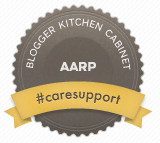The Myth of Caregiver Control – Learning to Let Go and Be Spontaneous
The Myth of Caregiver Control –
Learning to Let Go and Be Spontaneous
The first thing I noticed about being a “Caregiver” was the huge array of tasks and responsibilities set before me to tackle.
The second thing I noticed was my need for control. My need to prove I could do a good job, that I was a responsible person and that I could be relied upon, trusted and respected.
With these two aspects I also noticed that even though I was focused primarily on tasks for the person I was caring for, I found my emotions were running the show. I discovered “Caregiving” was much more then completing physical tasks; even though they were the only thing on my “checklist of things to do.” I noticed caring not only affected the person I was caring for, but me! I found emotions were tied to every task from both sides. I found the person I was caring for was much more interested in the way I engaged them while doing a task, then how, when or why I completed the task.
So what exactly does all of this mean? It means that both tasks and emotions come wrapped together in this Caregiving package. They are intertwined. It means that all care partners need to be aware of their own feelings as well as those they are caring for. It is critical both sides communicate openly without judgment. It’s time to let go of the myth that we are in total control of this caring process.
Let me ask you:
- How many times when you were “in charge” of caring for someone, did you reach out for help? This could be a sibling or another family member, a friend or even someone you hire to assist you.
- How many times when you asked a person for help did you tell them what, how and when to complete the task?
Here is why I asked you these questions.
Most of us, when “in charge” assess what we feel is the best possible plan to be implemented. Most of us then proceed to instruct others to implement “our plan”, in “our way” and in “our time frame.” The mistake I see here is that we forget a critical dynamic; the person we are caring for interacts with another person differently than they do us.
Each Caregiving relationship different, no matter how subtle. This changes the emotional outcome which typically drives the success of each interaction. You see caring isn’t so much about the task. It is about how we feel about the person we are caring for and how they feel about us caring for them.
We need to remember that each caregiver and care receiver is unique in their own right. Taking care of one another must be customized to maximize our engagement and our relationship with each other. This requires us to constantly assess each and every action and reaction. To build in the ability to be spontaneous and to be able to break away from a preconceived plan.
Next time you are being cared for or are giving care to someone else; don’t forget to assess how each of you is feeling. It’s perfectly fine to have an open conversation on this. In fact, it’s a wonderful way to become closer, have a better understanding of one another. Just think how nice it would be to not have to guess, but actual know because you are having an honest conversation as to what is working and what is not. Now I do understand not in all situations can you have this type of conversation as you might be dealing with a new born baby, a person how is in a coma or has had a stroke or maybe even someone with memory loss. In these cases, it is critical for the caregiver to pay close attention to the unspoken communications and needs of the person they are caring for.
By letting go of this false sense control, we are able to embrace the true moments before us and care better not only for one another but ourselves.
Click on the AARP logo below for
Additional Resources and Information
Disclosure – I am a member of AARP’s blogger kitchen cabinet on caregiving issues. All opinions are my own.



Susan
Date: Mon, 18 Mar 2013 16:19:17 +0000 To: susanvross@hotmail.com
HI Susan
Thanks for checking in
Lori
Reblogged this on lava kafle kathmandu nepal.
“Both tasks and emotions come wrapped together in this Caregiving package.” Oh, how true. It took me awhile to balance these 2 with caring for my Mom, both because she is so independent and also so reliant on me. Control of caregiving takes time and adjustments. I’ve been caring for my Mom almost daily for 6 years, and have discovered ways to care for myself, too. Running. Thinking. Swimming. Thinking. Cycling. Thinking. Writing. Thinking. The great discovery, though, is how much my Mom loves HEARING about my little adventures and stories I write for my grandkids. Tasks become easier because we are sharing wonderful conversations. My Mom’s emotions, too, are more stable because she knows that I am not giving up everything to care for her… very, very important to her. I think our “true moments” are so special because of the sharing, the conversations, the “forgetting” for awhile how the roles are now reversed. Lot to think about. Wonderful post!
HI Sharon
Thank you so much for writing and sharing your experience with us. I also checked out your website… very fun and interesting.
Thanks again and have a great day!
Lori
Thanks for sharing. Glad you liked the article
Lori